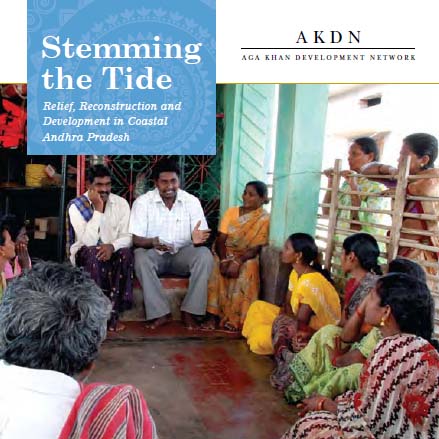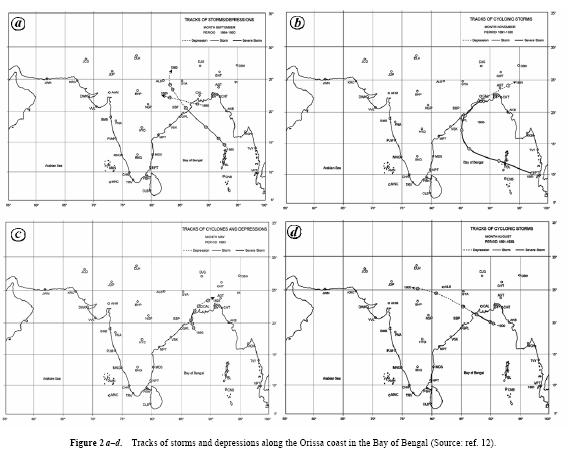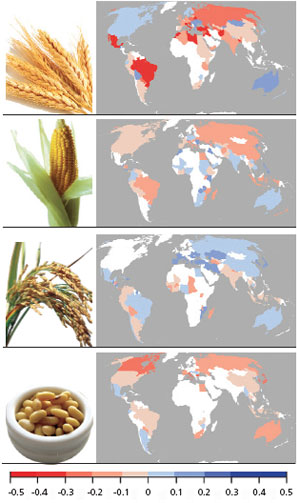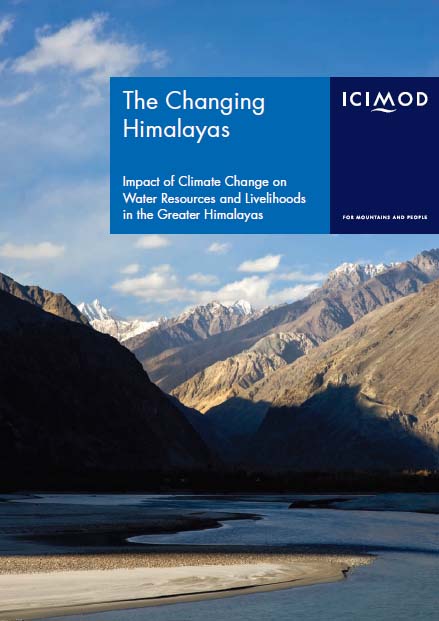/topics/climate-change
Climate Change
World Water Week training courses on water management, Cap-Net/UNDP – Stockholm International Water Institute, August 19-20, 2011, Stockholm
Posted on 11 Aug, 2011 10:32 AM
Organizer: Cap-Net/UNDP and Stockholm International Water Institute
Venue: Stockholm International Water Institute, Drottninggatan, 33, 111 51 Stockholm, Sweden
Suppressed surface heating over north-western parts of the country and the ensuing monsoon rainfall - A report by India Meteorological Department
Posted on 08 Aug, 2011 07:38 AMDuring the year 2011, the temperatures have been below normal over north and northwestern parts of India due to the enhanced activity of western disturbances. These conditions had raised many apprehensions about the possible impact on the subsequent monsoon, if any.
Uncertainties in downscaled relative humidity for a semi-arid region in India – A paper in Journal of Earth Systems Science
Posted on 05 Aug, 2011 05:42 PMThis paper in Journal of Earth Systems Science deals with uncertainties in downscaled relative humidity for a semi-arid region - Malaprabha basin in India. Researchers and decision-makers who assess the impact of climate change in river basin development, agriculture, hydrology, irrigation management, etc., require future scenarios of relative humidity.
Stemming the tide - Relief, reconstruction and development in coastal Andhra Pradesh – A report by Aga Khan Development Network
Posted on 05 Aug, 2011 02:35 PM Its aim aim was to improve the capacity of target communities to better manage in times of disaster. To set in motion a process that would sustain a short-term project, the Aga Khan Development Network drew on guiding principles developed from its experiences of projects in disaster reconstruction and more comprehensive development programs: high-quality community-based interventions, working on multiple fronts, and fostering linkages with strong institutional partners.
Its aim aim was to improve the capacity of target communities to better manage in times of disaster. To set in motion a process that would sustain a short-term project, the Aga Khan Development Network drew on guiding principles developed from its experiences of projects in disaster reconstruction and more comprehensive development programs: high-quality community-based interventions, working on multiple fronts, and fostering linkages with strong institutional partners.
At the core of the project’s disaster management and mitigation strategy was the creation of empowered and highly motivated community-based organizations; their participation was critical in shaping and implementing initiatives that would best serve the needs of the vulnerable, particularly women and children.
Troubled waters - Climate change, hydropolitics and transboundary resources – A report by TERI and The Henry L Stimson Center
Posted on 02 Aug, 2011 07:38 PMThis report is a part of Stimson’s Regional Voices: Transnational Challenges project and provides valuable cross-regional and multidisciplinary insights into the complex issues surrounding transboundary water resources and climate change. It examines the environmental dangers and policy dilemmas confronting the sustainable management of shared water resources in a warming world.
Role of cyclones and other factors in the decline of the ports of northern Orissa - Current Science
Posted on 30 Jul, 2011 01:23 AM This article published in Current Scienc
This article published in Current Scienc
Climate change hits food production
Posted on 28 Jul, 2011 03:10 PMArticle and Image courtesy: Down To Earth
Author: Indu Mathi S
Global warming has resulted in 20 per cent increase in price of wheat, maize, rice and soybean.
 Estimated impact of climate change on crop production during 1980-2008. Negative values indicate climate change reduced yields
Estimated impact of climate change on crop production during 1980-2008. Negative values indicate climate change reduced yields
There have been many indicators that global warming could be hurting the world food production, lowering yields and increasing prices. Turns out the warming of the planet over the past three decades has already led to a measurable reduction in crop production of wheat and maize.
The changing Himalayas - Impact of climate change on water resources and livelihoods in the Greater Himalayas – A report by ICIMOD
Posted on 27 Jul, 2011 09:56 PM The greater Himalayan region “the roof of the world” – contains the most extensive and rugged high altitude areas on Earth, and the largest areas covered by glaciers and permafrost outside the polar regions.
The greater Himalayan region “the roof of the world” – contains the most extensive and rugged high altitude areas on Earth, and the largest areas covered by glaciers and permafrost outside the polar regions.
The sector programme and climate change initiatives in Uttarakhand
Posted on 27 Jul, 2011 02:54 PMRecent scientific studies show that global warming is already causing environmental changes that will have significant global economic and social impacts. As the world's 4th largest emitter of greenhouse gases, India has to juggle the imperative demand for economic development with pressures for greater efficiency in the use of energy.
Climate change is a change in the statistical properties of the climate system when considered over long periods of time, regardless of cause. Climate change reflects a change in the energy balance of the climate system, i.e. changes the relative balance between incoming solar radiation and outgoing infrared radiation from Earth. The threat emanates from accumulated green house gas emissions in the atmosphere, generated through long term and intensive industrial growth and high consumption life styles of developed countries.





